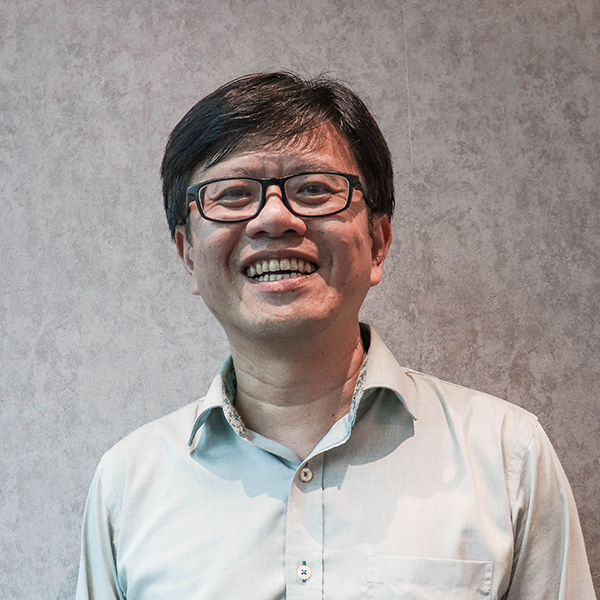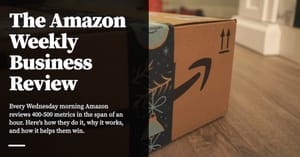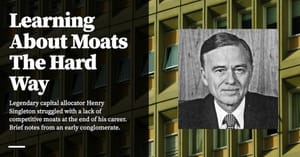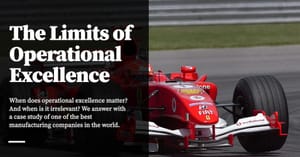This is an addendum to my last post on Chinese businessmen, in which I discussed a business phenomenon I called the ‘SME Loop’.
I wanted to tell this story in that post, but I couldn’t find a way to fit it into the argument I was making. I’ve decided to break it out into a separate piece. This story is something that’s stuck with me for a bit, and it has to do with a Singaporean entrepreneur by the name of Tan Teik Guan.

Earlier this year, I took part in an ‘entrepreneurship’ program by British incubator Entrepreneur First. One of the advisors attached to the program was Teik Guan, former CEO of Singaporean security startup DS3. DS3 made authentication servers for pretty much all the major banks in Singapore.
Teik Guan started at DS3 in 1998, right before the dotcom bust. He eventually ran it as its CEO for most of its 15 years.
I was interested in talking to Teik Guan during EF's program because of a thing he said when his company was finally acquired by Gemalto, in 2013:
For twelve years, Tan Teik Guan has been carrying the weight of the company and its employees on his back, first as DS3‘s CTO and then as CEO in 2006.
One wrong move could affect not just his 50 employees but also their families. It’s a huge burden to bear, especially since a startup lacks the stability of a large company.
“I didn’t just have my own kids to think about — all my employees are like my children,” he said.
(…) “Oh my gosh, it was a huge burden off my back,” he said.
This attitude of responsibility struck a chord with me. I’ve often felt the same unbearable weight when it came to running the business I was previously with; when I was serving clients or working late nights, it was often the families of my staff that I had in mind.
So it was no surprise, then, that during the EF program, I was interested enough to find Teik Guan to ask him about his experiences.
I got my chance in the first week of the program. Teik Guan had been giving a talk with the other 'venture partners' attached to EF. I cornered him near the refreshments table and started talking to him about the things he said at the acquisition. “Did you ever get used to being responsible for your people?” I eventually asked.
Teik Guan laughed. “No, never. I was technical, so it wasn't my thing. Maybe if you were from business or sales you could treat it as normal, but it was a huge burden for me as an engineer and I never could get used to it.”
I then asked him about the SME loop. Halfway through my description of the loop, Teik Guan started nodding. “So how did you break out of it?” I finished.
“It’s very hard. Very hard.” he said, “We only managed to break out of it by taking on investment.”
“What made you decide to take investment?”
“Well, I was very affected when two of my oldest guys left me. They had been with me for about a decade at that point. I asked them: 'Why are you leaving?' They said that every year, year in and year out, it’s just more of the same. The deals get bigger but it’s still just the same thing. They didn’t feel that interested anymore.
“So I got thinking. At that time we had this opportunity because of a partnership we got with IBM. I sat down with my team and asked them: ‘are you willing to take on investment and go international with this deal? If we do it, we have to chiong and we might die. But if we don’t, it will be more of the same.'”
(Chiong is a Hokkien word that basically means ‘rush’. In this context, Teik Guan was saying “do or die”).
“And what did they say?”
“They said yes. Go for it. So we went for it lorr. I took on investment, and we chiong-ed and eventually … we got acquired a few years later.”
Teik Guan’s advice to me was that my old company could not possibly break free of the loop without external capital. Not in our market, and not with our products.
But putting his advice about my specific situation aside, I found his story incredibly moving. Here was a man who cared for his employees so much he asked them for permission before he took on investment.
I’ve had two takeaways from this conversation in the months since. The first was that I found Teik Guan’s attitude remarkably admirable — and something worth emulating. The second was that I was quite gratified to find his recognition of the SME loop so immediate. He had grappled with it, and he found a way out.
This story, and a few others like it, led directly to the ideas in Maybe Strategy Matters.
Originally published , last updated .
This article is part of the Operations topic cluster, which belongs to the Business Expertise Triad. Read more from this topic here→





